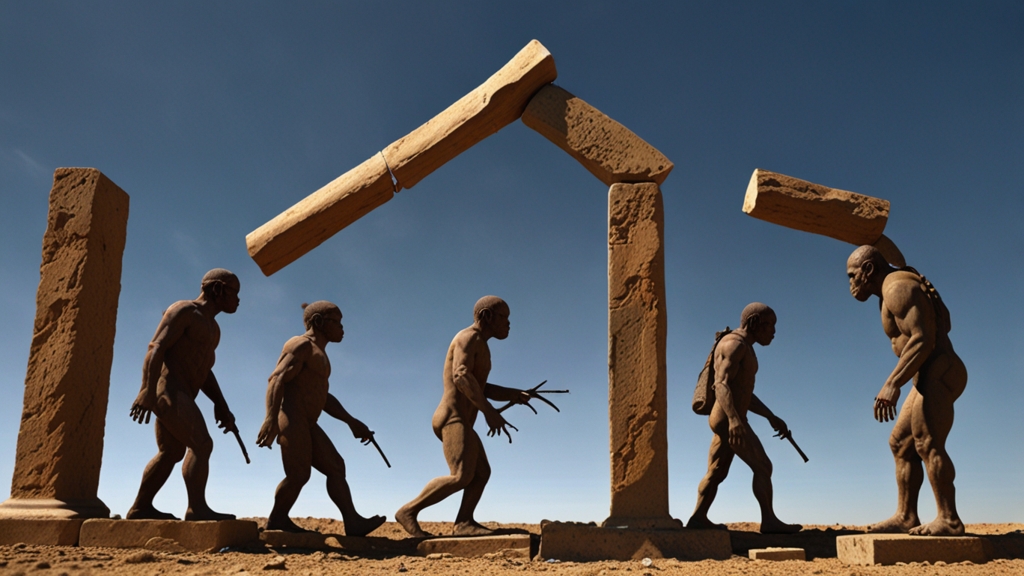The Rise of the Babylonians: From Farmers to Kings
The ancient history of Mesopotamia is a tapestry woven with the threads of various civilizations, each contributing to the rich cultural and political landscape of the region. Among these, the Babylonians stand out as a civilization that transitioned remarkably from agrarian roots to imperial grandeur. This rise from farmers to kings is a fascinating journey marked by significant developments in governance, economy, and culture.
Early Beginnings: Agricultural Foundations
The roots of the Babylonian civilization can be traced back to the early settlers of the Mesopotamian plains. Situated between the Tigris and Euphrates rivers, the fertile soil of this "land between rivers" provided optimal conditions for agriculture. Early Babylonians, primarily farmers, harnessed the power of these rivers through intricate irrigation systems, which allowed for the cultivation of crops such as barley, wheat, and dates.
Farming was not merely a means of subsistence; it laid the foundation for the development of settled communities. As agricultural practices improved, surplus production became possible, paving the way for trade and the accumulation of wealth. This increased prosperity allowed these communities to grow in complexity and sophistication, setting the stage for the emergence of a more structured society.
The Dawn of Urbanization
As agricultural communities flourished, small settlements gradually evolved into larger urban centers. One of the most significant of these was Babylon, which would eventually become the heart of the Babylonian Empire. The city’s strategic location along key trade routes facilitated economic growth and cultural exchange, drawing people from various regions.
“Babylon was not just a city; it was the epitome of Mesopotamian achievements in architecture, law, and administration. Its rise to prominence is a testament to the ingenuity and resilience of its people.”
Urbanization brought about new challenges and opportunities. The need for organized governance became apparent, leading to the establishment of administrative systems and legal codes. One of the most famous early legal documents is the Code of Hammurabi, which dates back to around 1754 BCE. This code is a compelling example of the sophistication of Babylonian law and governance.
Hammurabi and the Expansion of the Empire
King Hammurabi, who ruled from 1792 to 1750 BCE, was a pivotal figure in Babylonian history. Under his reign, Babylon transitioned from a city-state to a dominant empire that controlled much of Mesopotamia. Hammurabi’s military prowess and strategic diplomacy were crucial in expanding Babylonian territory and influence.
Hammurabi is perhaps best known for his codification of laws, which covered various aspects of daily life, from trade and property rights to family law and criminal justice. The Code of Hammurabi not only unified the diverse populations under his rule but also set a precedent for future legal systems in the region.
“To promote the welfare of the people, I have enacted these laws. By the command of Shamash, the great god, I establish justice in the land, to destroy the wicked and the evil-doers.”
Scientific and Cultural Contributions
The Babylonians were not just remarkable rulers and lawmakers; they also made significant contributions to science, literature, and the arts. They excelled in astronomy and mathematics, developing a positional number system and a calendar that accurately tracked celestial events. These advancements had long-lasting impacts, influencing subsequent civilizations in the region and beyond.
Babylonian literature, including works like the "Epic of Gilgamesh," reflects the rich oral traditions and profound philosophical inquiries of the time. Their artistic achievements, seen in the construction of monumental structures like the Ishtar Gate, showcased their architectural innovation and aesthetic sensibilities.
Legacy of the Babylonians
The Babylonian Empire eventually fell, but its influence endured through the ages. The legal, scientific, and cultural achievements of the Babylonians became integral to the heritage of Mesopotamia and provided a foundation for future civilizations in the region.
From humble beginnings as farmers to the heights of kingship, the Babylonians' journey is a powerful narrative of human potential and resilience. Their legacy continues to be a source of fascination and inspiration for historians and scholars around the world.









